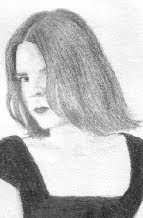New Year’s Reading Resolution #14
 Somewhere in the perhaps-not-too-distant future, all buildings have been fireproofed and the job of the fireman has changed. Instead of putting fires out, he starts them: igniting books at 451o Fahrenheit and destroying both them and the buildings that house them. The renegades who harbour such dangerous items are carted off; or, if they resist, hunted down by the local fire department’s Mechanical Hound, a fearsome beast with unmatched tracking abilities and a lethal injection in its snout.
Somewhere in the perhaps-not-too-distant future, all buildings have been fireproofed and the job of the fireman has changed. Instead of putting fires out, he starts them: igniting books at 451o Fahrenheit and destroying both them and the buildings that house them. The renegades who harbour such dangerous items are carted off; or, if they resist, hunted down by the local fire department’s Mechanical Hound, a fearsome beast with unmatched tracking abilities and a lethal injection in its snout.
Guy Montag is a fireman, like his ancestors before. For ten years he has gone out every night to incinerate illicit stores of literature. One night, walking home, he meets Clarisse McClellan, a girl from a family of eccentrics who do such things as walk the streets for no reason, taste the rain, and tell tales of a time when books were treasured and a fireman’s job was the reverse of what it has become. He enjoys talking to someone so different from his wife Millie, who cocoons herself in technology and is chattered at by her televisual ‘family’ all day and the voices in her earplug radios all night. But he never tells her his deepest secrets: that he once met a man named Faber, who spoke to him of books, and who he should have reported but didn’t; and of what he keeps inside the ventilation duct in his hall. Clarisse’s questions make Guy ask questions of his own, and he tracks down Faber, who tell him of a world beyond the city, where tramps roam the highways, known both by their own names and those of the authors whose works they carry inside their heads. Together they hatch a plan, but before they can carry it out an act of betrayal brings the Mechanical Hound to Guy’s own door.
Given that it was written more than fifty years ago, this was a creepy read. As far as I could make out through Chief Beatty’s rambling, hyper-animated way of talking, books fell out of favour because so much of their contents had the potential to be construed as offensive by some minority group or other, and because of the dumbing-down of education. And lo and behold, now political correctness is the order of the day and recently a local academic suggested - in perfect seriousness - that high schoolers who can’t spell to save their lives should still be given credit for ‘digital literacy’ (i.e. the ability to mangle decent English in text messages and emails). Fortunately that idea wasn’t well received, so there’s hope yet. And I hope the resemblance to Bradbury’s fictional world goes no further. As a dystopian vision of the future and a warning of what we might become, this was a standout read.
As a read, however, it was a little less remarkable. Douglas Adams and the Victorian vision of The Time Machine aside, science fiction tends not to agree with me. I’m yet to work out why; perhaps it’s the creep factor or perhaps it speaks to my inner technophobe (and yes, I realise how odd it is to apply that word to a blogger). So while I did enjoy reading it, there was always a vague unsettling feeling to it, which I think was exacerbated by the fact that Clarisse’s fate was never really determined and the war was never explained. Who was fighting who and why? Not that I suppose it really mattered; I just like to know these things.
But in spite of that, this is still a wonderful book.
Rating: B+











Nice review. What book would you be?
ReplyDeleteI'm sorry this book made you feel unsettled - it's one of my favorites. Oddly enough, I don't care for much anything else by Bradbury except very short stories. But wonderful reviewing!
ReplyDeleteI read this one at the beginning of the year and can still see how it relates in today's society. I can see why you wrote what you did about the story. The message was so much stronger than the story itself, if that makes any sense. I am glad I read it.
ReplyDeleteI haven't read this one but have just finished 2001 which surprised me. If you're not a sci-fi fan, I'd still recommend it. The writing is very good.
ReplyDeleteI just bought this a couple of days ago and am looking forward to reading it in the future. I know what you mean about books unsettling you, for me Lord of the Flies by William Golding was like that.
ReplyDeleteI really enjoyed this book as well--and found it very haunting. Near the end, though, my attention began to wane as it became more science fiction-like. At the beginning, don't you just want to hug Clarisse? I loved her!
ReplyDelete